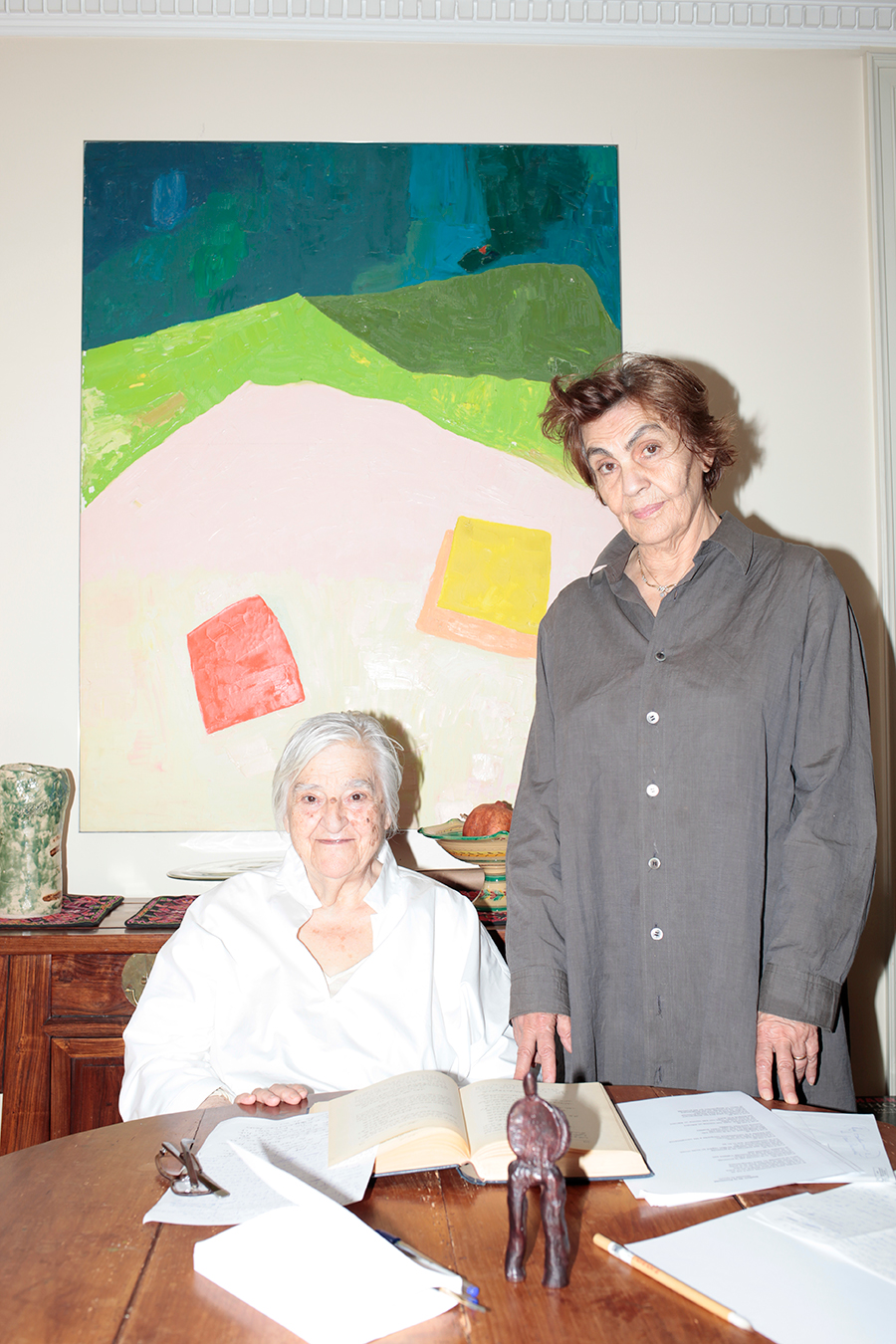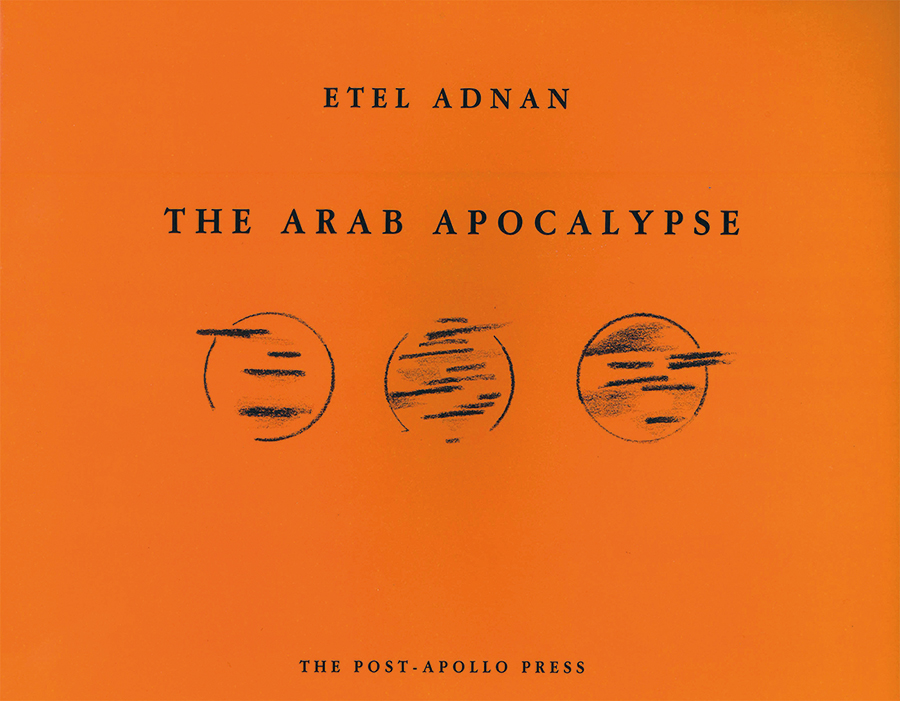The Many Loves of Etel Adnan
Negar Azimi on Adnan’s sensuous intellect
Negar Azimi on Adnan’s sensuous intellect

Etel loves Franz Schubert and Umm Kulthum. She loves ice cream and tabouleh and red wine. In Paris, she loves Pizza Chic, a serious restaurant with an embarrassing name. In Beirut, she loves Mount Sannine, the way its pencil edges turn pink at sunset. She loves Death in Venice (1971), the moody and sensuous Luchino Visconti film about an ageing composer’s infatuation with a dreamy Polish boy. She loves people, including the ones who visit her at home to ply her with question after question after question. She interviews them before they interview her. She listens with electric interest.
Etel loves to love. She loves the Venus de Milo (c.100 BCE). The sight of the love goddess’s lusty statue at the Louvre sets her imagination on fire. She loves Marguerite Yourcenar, a writer who once tried to seduce her by depositing a copy of One Thousand and One Nights (c.8th century) by young Etel’s bedside. She loves the artist Simone Fattal, her partner of over four decades, above all. One thing she does not love, she announces one Christmas Eve, is holidays.

‘Every square is a fresh beginning,’ she says of her own bright, geometrically inclined paintings. ‘Painting is not a shape, but it is a feeling.’ This child of the Ottoman Empire loves the state of California, where a mountain named Tamalpais is her best friend. ‘How beautiful it is’, says this lifelong lover of the sea, ‘to arrive to a country by boat.’ At 95, Etel is still ravenous for the world. Informed one day about a newfangled thing called Uber, she swipes her index finger across a visitor’s iPhone and sends it flying off the table. ‘It is difficult to be alive,’ she concludes, and we laugh. A woman who never cared for money, she now has more than she could ever wish to spend. ‘How ironic,’ she says, in her textured Levantine accent.
From Los Angeles, where I am marooned in ambiguous ‘lockdown’, I try to imagine what Etel’s take on this wretched moment might be, a moment politicians and pundits liken to wartime. A moment in which we are isolated, masked and muzzled, cut off from so many of our loves. She has thought deeply, profoundly, about wartime, the way it batters the psyche, the ghastly imprints it leaves on the soul. Once upon a time, the Algerian War hardened her against France. The Vietnam War (1955–75) made her a poet. Love, she suggests, requires a different sort of bravery. ‘Love in all its forms is the most important matter that we will ever face,’ she wrote in The Cost for Love We Are Not Willing to Pay (2011). ‘But also the most dangerous, the most unpredictable, the most maddening.’

I think of her in Paris now, listening to the radio, fiddling with the libretto she has been composing on Marie de’ Medici, staring out at a doomy and deserted rue Madame. I envision her trying to make a painting. Failing to make a painting. Trying again. The writer of a book called The Arab Apocalypse (1989) is an inveterate optimist. The writer of a book called The Arab Apocalypse is a committed sensualist. ‘Love is the only salvation I know of.’
Main Image: Etel Adnan, Quiétude (Quietness), 2017–18, handwoven wool tapestry, 1.4 × 2 m. Courtesy: Sfeir-Semler Gallery, Beirut/Hamburg























